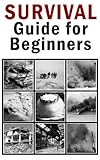Emergency Preparedness and Disaster Preparedness
Preparedness refers to a very concrete research based set of actions that are taken as precautionary measures in the face of potential disasters. These actions can include both physical preparations (such as emergency supplies depots, adapting buildings to survive earthquakes and so on) and trainings for emergency action.
Preparedness is an important quality in achieving goals and in avoiding and mitigating negative outcomes. There are different types of preparedness, such as public health preparedness and local emergency preparedness or snow preparedness (i.e.: Snow Preparedness Teams SPT), but probably the most developed type is “Disaster Preparedness”, defined by the UN as involving “forecasting and taking precautionary measures prior to an imminent threat when advance warnings are possible”. This includes not only natural disasters, but all kinds of severe damage caused in a relatively short period, including warfare. Preparedness is a major phase of emergency management, and is particularly valued in areas of competition such as sport and military science.
http://www.survivalistboards.com/ After a few false alarms, people become complacent with their disaster preparedness plans. Meaning, that they do not think …
Some reference Preparedness as “Emergency Preparedness” or “Disaster Preparedness”. Emergency preparedness also includes more than physical items and skill specific training. Psychological preparedness is also a type of emergency preparedness and specific mental health preparedness resources are offered for mental health professionals by organizations such as the Red Cross. These mental health preparedness resources are designed to support both community members affected by a disaster and the disaster workers serving them. CDC has a website devoted to coping with a disaster or traumatic event.
After such an event, the CDC, through the Substance Abuse and Mental Health Services Administration (SAMHSA), suggests that people seek psychological help when they exhibit symptoms such as excessive worry, crying frequently, an increase in irritability, anger, and frequent arguing, wanting to be alone most of the time, feeling anxious or fearful, overwhelmed by sadness, confused, having trouble thinking clearly and concentrating, and difficulty making decisions, increased alcohol and/or substance use, increased physical (aches, pains) complaints such as headaches and trouble with “nerves.”
Thank you for reading this post, don't forget to subscribe NOW for FREE!
(function(d, s, id) {
var js, fjs = d.getElementsByTagName(s)[0];
if (d.getElementById(id)) return;
js = d.createElement(s); js.id = id;
js.src = “//forms.aweber.com/form/14/1587179514.js”;
fjs.parentNode.insertBefore(js, fjs);
}(document, “script”, “aweber-wjs-gxrk7em22”));
Survival Guide for Beginners
Survival Guide for Beginners
Current Price: too low to publish







